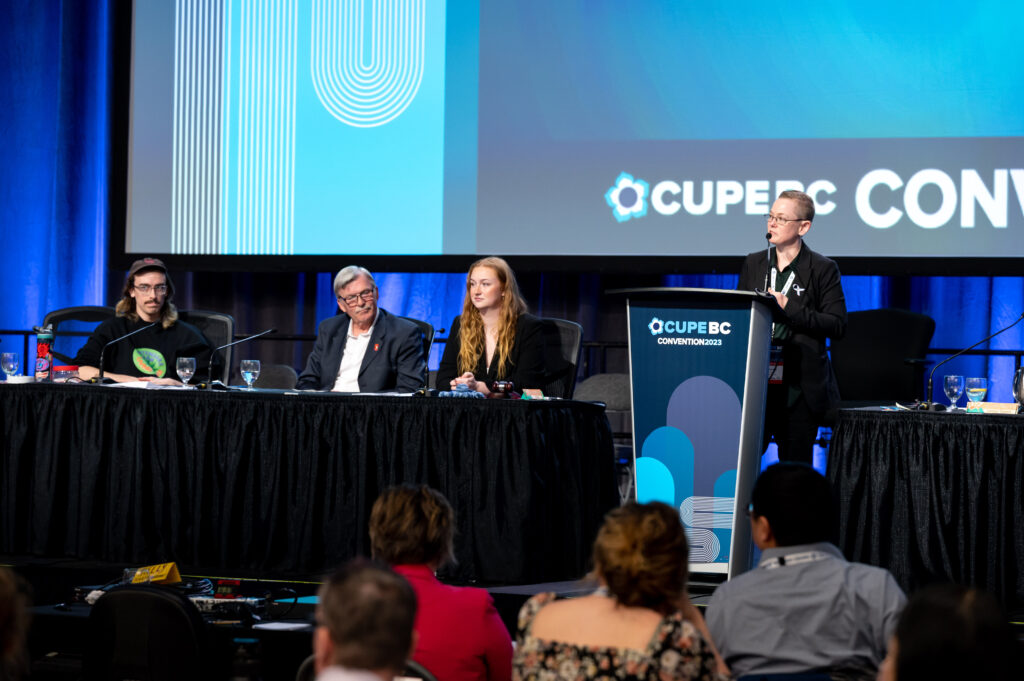VICTORIA – CUPE BC convention delegates were treated to a thought-provoking discussion at this year’s forum – Organizing to Win! Panelists shared their experiences in mobilizing and organizing, and what strategies and tools they used to grow the labour movement.
The forum was moderated by former CUPE local leader and activist, now lawyer, Adrienne Smith. They led the discussion with three panelists – two of which helped in organizing drives in sectors not usually known for being part of the labour movement, and another that was on the forefront of a massive province-wide strike.
Sarah Broad is a student and Starbucks barista. At the height of the pandemic, Sarah and co-workers felt unprotected and vulnerable by an indifferent employer. Within a year, Sarah led an organizing drive to join the Steelworkers and helped get a first collective agreement at their Victoria-area Starbucks.
“A lot of us had it drilled into our heads that what we did was unskilled labour – I really hate that term because no labour is unskilled,” said Sarah, recounting the start of organizing drive. “We are still the only Starbucks with a contract, so it’s still very fresh…. Everyone deserves to feel safe and have worth at work.”
Thomas Reimer is a film maker and budtender at Seed & Stone cannabis shop. Thomas helped organize his shop with UFCW. In November 2022, his bargaining unit reached its first collective agreement – a deal that was ratified with a 100 per cent vote in favour.
“The nature of getting workers to fight back, and then having their boss gaslight them that they are asking for too much, it can take a lot out of people,” said Thomas about some of the challenges their drive had in the early days. “Small steps forward, solidarity amongst the crew, putting the ladder down for others to climb up, that’s what we kept in mind.”
Stephen Drost is a social worker from CUPE 1418 and since 2021 he’s been president of CUPE New Brunswick. After decades of extremely low to no wage increases, Stephen and CUPE New Brunswick developed the Bargaining Forward strategy. It was a four-year process of educating and mobilizing CUPE members. The plan culminated in 10 CUPE locals, representing over 22,500 members going on a coordinated province-wide strike.
“We made sure our members knew what was going on, and it drove the Premier nuts,” Stephen told delegates, stressing the importance informed members have in organizing. “The workers learned their value and learned what they needed to do. It led to them getting the best contracts they’ve seen in 10, 15 years.”



